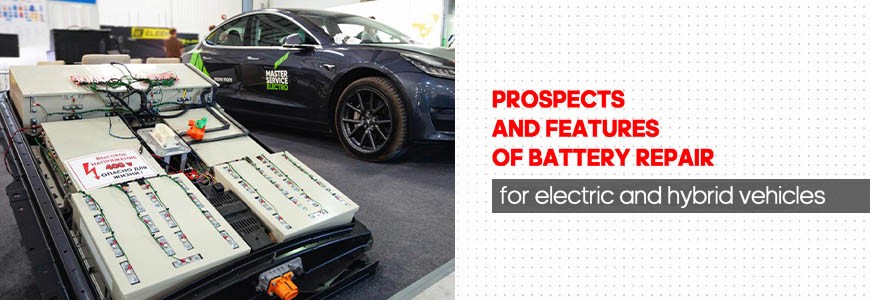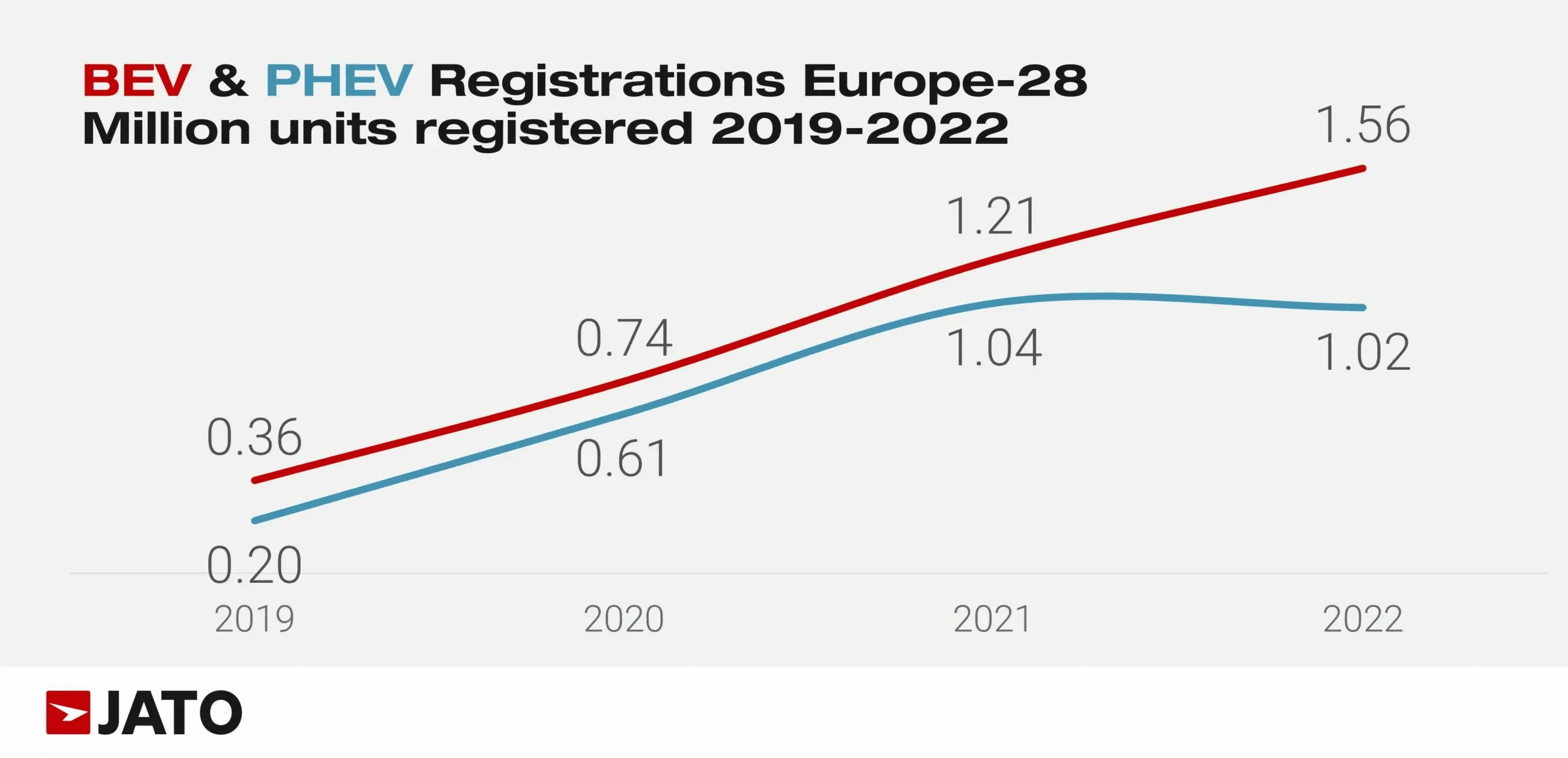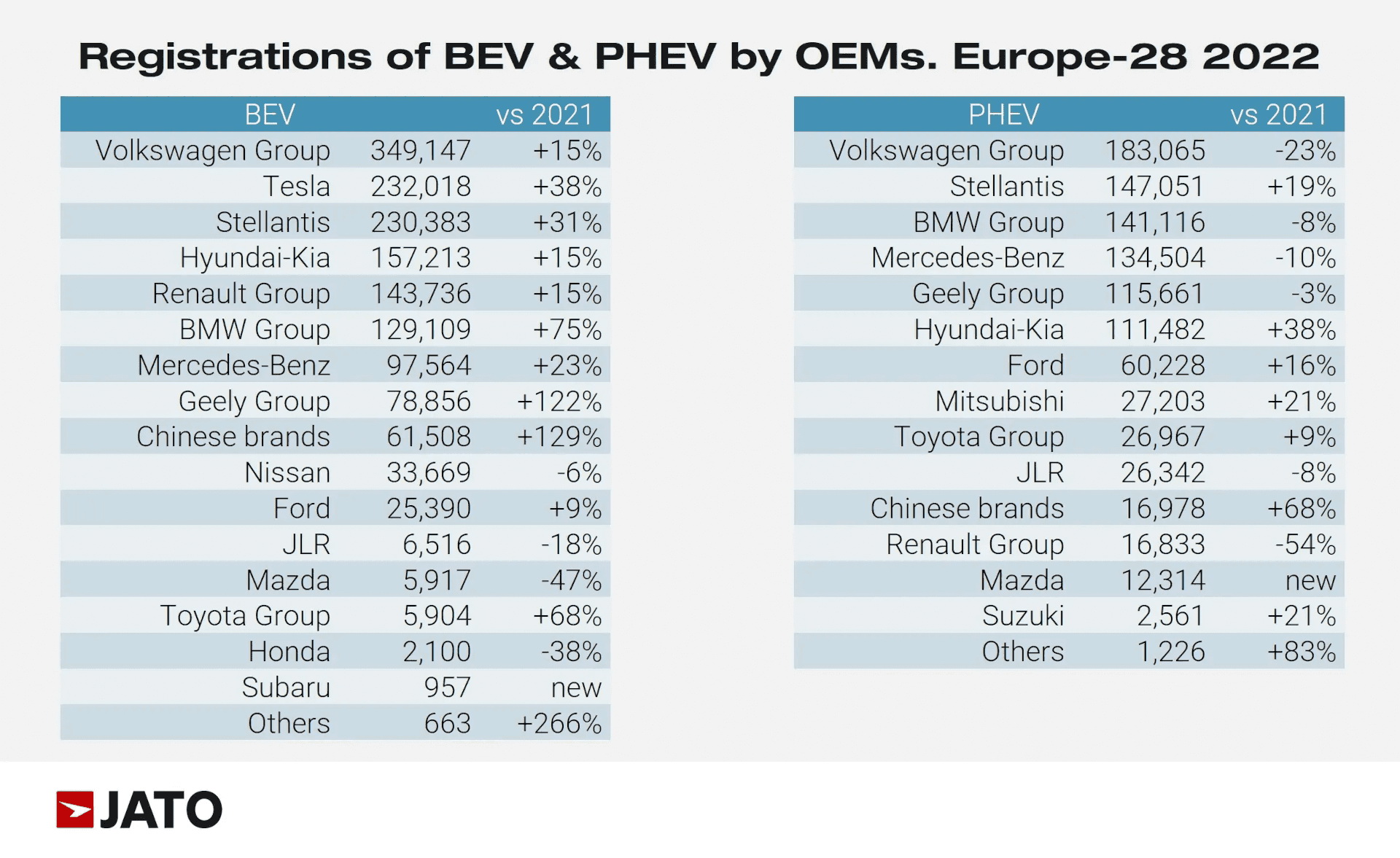
Year after year, sales of electric and hybrid cars are breaking records. Active marketing campaigns and government subsidies for eco-friendly transportation contribute to this trend. Global electric car sales saw a 68% increase in comparison to 2021, with a total of 7.8 million electric cars sold worldwide in 2022.
What's the situation in the electric and hybrid car market?
In the European automobile market, electric cars accounted for 14% of total sales in 2022 (1,575,079 units), while plug-in hybrid cars made up 9% (1,013,827 units). However, electric car sales in Europe are not evenly distributed. The majority of sales occur in countries such as Germany, France, the United Kingdom, Norway, and the Netherlands. In contrast, countries like Poland, Romania, Bulgaria, and Estonia have low sales of new cars but a strong demand for used electric vehicles.
Volkswagen is the leading brand in Europe in terms of sales of both electric cars and hybrid vehicles. In 2022, Volkswagen sold 349,147 electric cars and 183,065 plug-in hybrids in European countries. Tesla took second place with 232,108 units sold, while Fiat, Peugeot, and Citroen, part of the Stellantis corporation, secured the third position. It's worth noting the significant growth in sales for Geely Group, with a 122% increase.

In the United States, the electric car market saw slightly less than 918,500 electric cars sold in 2022. Tesla continued to lead the sales, as it has for several years, with its Model Y and Model 3. Ford Mustang Mach-E and Chevrolet Bolt EV/EUV took third and fourth place with a considerable gap.
China also experienced record-breaking electric car sales in 2022, with over 5.92 million new passenger electric cars and hybrids finding owners. This included 4.35 million battery electric vehicles (BEV) and 1.57 million plug-in hybrid electric vehicles (PHEV). Most of these sales were from Chinese manufacturers.
As evidenced by the data above, the electric car market continues to grow, and there is a stable demand for plug-in hybrid vehicles. The increasing number of electric and hybrid vehicles on the road leads to a growing need for high-voltage battery repair and rebuild hybrid battery.
Features of Electric and Hybrid Car Battery Repair
Repairing high-voltage batteries is a complex task that requires an individualized approach, continuous training, adherence to safety measures, and the availability of appropriate equipment. The process of identifying and rectifying issues with electric and hybrid car batteries involves several steps:
1. Initial diagnosis of the traction battery using a diagnostic scanner in the vehicle.
2. Removing the battery from the car and disassembling it.
3. Determining with a li-ion battery tester or nimh battery tester the status of potentially defective modules, or diagnosing the entire battery. It all depends on the specific situation, battery type, age and mileage of the vehicle.
4. Based on the diagnostic results, the source of the problem is identified. Battery failures are not always related to modules that have lost their capacity; other issues can include problems with the Battery Management System (BMS), damaged wiring, or faults in the thermal regulation system, among others. Having the necessary equipment allows the technician to accurately pinpoint the cause of the malfunction.
5. Subsequent steps involve rectifying the issue, including replacing faulty modules and reassembling the battery.
6. The final step involves testing the battery's performance through charging it in the vehicle and conducting a test drive. In some electric and hybrid cars, battery-related errors may only disappear after several discharge-recharge cycles and some driving, such as resolving the P0A80 error in Lexus CT 200h, Lexus RX 450h, and second-generation Toyota Prius vehicles.
The accuracy of diagnosis of the high-voltage traction battery of an electric or hybrid car is influenced by the availability of a li-ion battery capacity tester at the workshop. Our MS800 tester precisely determines the condition of the high-voltage battery modules and provides results in a comprehensible format for both the service specialist and the vehicle owner. This ensures transparency and clarity in the repair process, enhancing the reputation of the auto service.
For more information about the MS800 battery tester for electric cars, please contact our representatives at +38 073 529 64 26, +48 833 13 19 70, +48 886 89 30 56 (Viber, WhatsApp, Telegram).



COMMENTS